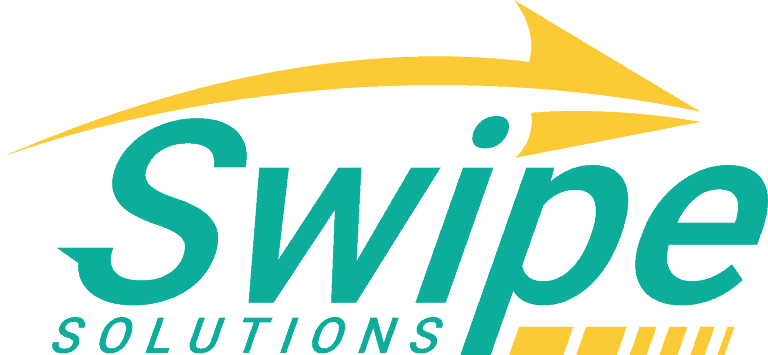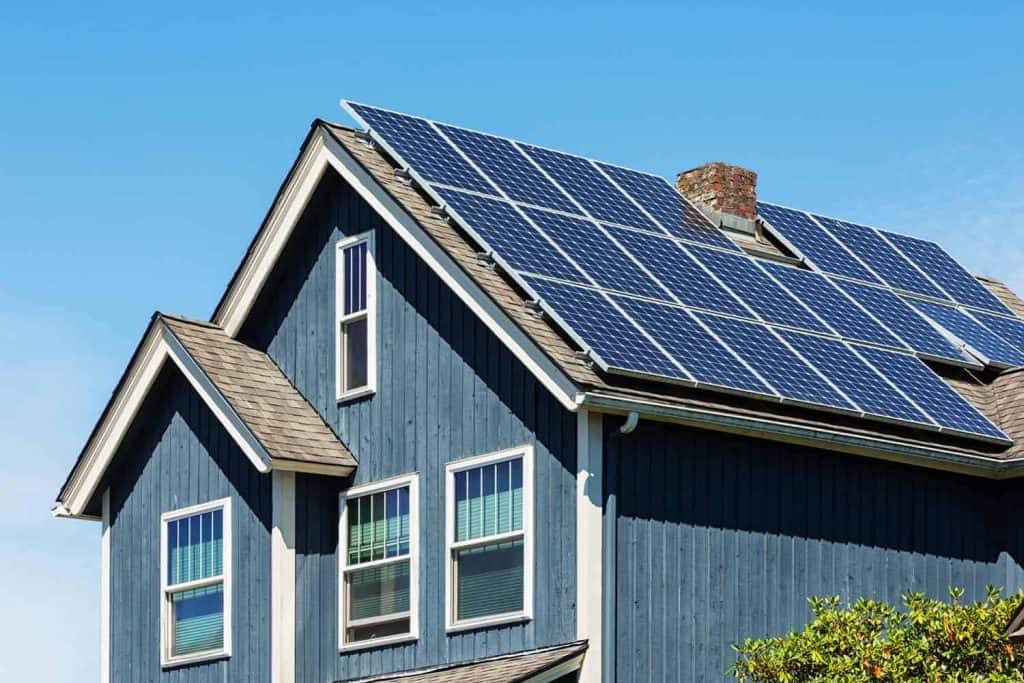The sun is the largest source of energy in the galaxy, and we can benefit greatly from using this immense resource.
According to researchers at Stanford’s DeepSolar Project, more than 1.5 million solar panels are being used across the U.S. alone, but how does solar power work exactly? How can a simple solar panel be used to power your hot water heater, TV, oven, and the other appliances in your home?
In this blog post, I’ll answer this question and more. I’ll walk you through the solar process, answer some questions you might have, and most importantly, discuss how solar power can save you money. Let’s jump right in.
Solar Energy – What Is It?
As its name suggests, solar energy is energy or fuel originating from the sun.
This is important because the sun has shined every day for thousands of years and will likely shine for thousands more. It is the ultimate renewable energy source. Its supply isn’t limited or expensive to extract like gas, coal, or oil. Plus, it is clean energy.
Through the use of photovoltaics, we can capture sunlight with solar panel systems and convert it into electricity. Solar panels are comprised of tiny silicon PV cells, which are organized into modules and linked together to create a panel. Each panel generates an electrical flow.
Solar Power – How Does It Work?
In a nutshell, the panels in your solar power system will use light particles known as photons to isolate electrons from atoms, creating solar power.
The entire process can be easily explained in just a few steps:
1. Panel Catches Sunlight and Generates Solar Electricity
When sunlight hits them, the PV cells in a solar panel system convert the photons into direct current electricity.
While this is great, DC electricity can’t be used to power your home. It must be converted to alternating current, or AC, electricity. This requires a solar converter.
2. Inverter Converts DC Current to AC Current
When you go with an experienced solar company, all you really need to know is that your inverter(s) convert useless energy into useful electricity.
Some solar panel systems have a single “string” inverter for the whole system. Others use microinverters connected to each solar panel. Regardless of which is used, you will be able to power most, if not all, of your home.
3. Unused Electricity is Sent to the Grid
If you choose to tie your system to the power grid, which may seem counterintuitive, you can supply the grid with any leftover solar electricity you generate.
To do so, you’ll need to set up a net metering agreement with your local utility. Many homeowners receive energy credits for their solar power surplus. Others regularly receive checks in the mail.
That’s right; not only are you not paying $100+ to the electric company each month, but they may actually pay you. How cool is that?
How It All Started
Did you know the modern idea of solar power we use today came from a handful of 19th century pioneers?
In 1839, Edmond Becquerel discovered PV cells generated more electricity when exposed to sunlight. Some time later in 1873, Willoughby Smith discovered the photoconductivity of selenium.
Meanwhile, in 1876, Richard Evans Day and William Grylls Adams applied Becquerel’s photovoltaic principle to selenium and discovered it could create electricity when placed in the sunlight. Seven years later in 1883, Charles Fritz, an American inventor, developed the very first selenium solar cell.
Voila! The rest is history.
Is Solar Power “Renewable”?
In one word: yes. Much like wind and hydropower, solar power is a renewable energy source in every sense of the term.
When talking about renewability and solar power, we’re talking about energy that is sustainable and will keep on producing for a long time. It is energy that doesn’t require any refueling or renewing. It constantly renews itself.
How Much Money Can I Save With Solar Power?
This is the big question, right? The truth is the amount solar power will save you depends on a variety of factors, like your location and specific energy needs.
Do your panels receive consistent sun? How big is your home and is it well-insulated? How much electricity does your household consume each month? What incentives are available in your county or state? These are just some of the things that can affect your solar savings.
Go With a Pro
The good news is an experienced solar expert can walk through your home and give you a detailed look at your system and savings options.
Many solar companies worth their salt also offer financing with affordable payments significantly less than the average monthly utility bill. So, regardless of your exact specifics, your savings will certainly be noticeable.
Best of all, you’ll be harnessing the sun’s power and using clean, renewable energy.
It’s a win-win.
What About Storing Solar Power?
In addition to powering your home and saving you money each month, a solar power system can also include an EV charger or solar batteries for literally power on demand.
As your solar power system is working away for you and your utility bill, any excess energy it generates can be stored in a solar battery or series of batteries. This will allow you to power your home at night, during a storm or power outage, and anytime you need.
Solar Power Checklist
By now, going with solar power seems like an obvious choice. If you do, you’ll be joining thousands and thousands of others. Here’s a checklist to get you underway:
Contact an Experienced Solar Professional
Qualified solar experts can perform a full evaluation of your home to provide you with a greater return on investment and meet your energy needs.
A solar professional will also walk you through the entire process and guide you every step of the way during the switch to affordable and renewable solar energy.
Evaluate Your Utility Bill
Your current utility bill is loaded with information to help your solar contractor install the perfect solar power system for your home.
Not only do your utility bills tell you how much electricity you use each month, but they also paint a clear picture of your annual energy usage. Of course, a home remodel, pool addition, or any other large change in your energy demands will affect this and should also be kept in mind.
Climate Considerations
Solar power works in just about any environment, but it’s important to make sure your solar panel system is properly sized for your particular home and climate.
It’s best to think of solar power energy on an average annual basis rather than a monthly basis or day to day. In other words, you should take your location’s greater climate conditions into consideration.
For example, if you live in the Northeast with often cloudier conditions, you will need a larger system than someone with a similarly-sized home living in the Southwest.
Roof Condition and Orientation
Is solar power a good option for your roof? The condition and orientation of your roof will tell.
Rooftop panels are lightweight by design, but it’s wise to check your roof to make sure there isn’t an existing issue or damage that may affect your solar panel system installation. Insect intrusion or water damage can weaken a roof’s structure and should be addressed prior to installing the panel system.
Your roof should also be oriented properly to fully harness solar power. North of the Equator, the sun’s photons travel from the south. For maximum efficiency, your panels should point southward and be unobstructed from any trees or structures. If your roof lacks southern exposure, your panels will likely need to be scaled to catch direct sunlight.
Roofing Material
Most rooftop solar panels come with a 20 or 25-year guarantee, so it’s a good idea to consider whether or not your roof should be replaced prior to installing your solar panel system.
The average roof is good for 30 years, so if your roof was installed over 15 years ago, you might want to think about re-roofing before going ahead with your solar panel install. That said, if only a patch job is needed, most panel installations can easily work with partial replacements and roofing material repairs.
Tax Rebates and Credits
State, federal, local, and utility tax rebates and credits vary widely and can impact your bottom line.
One of the benefits of solar power is all of the different tax rebates and credits available. As a thank you from the government for doing your part and going “green,” these perks alone can result in substantial monthly savings and zero to no out-of-pocket costs.
Out-of-Pocket-Costs
Speaking of out-of-pocket costs, you might still need to shell out some upfront depending on where you live and the size of your system.
However, there are many areas throughout the U.S. where you can have a solar power system installed with zero out-of-pocket costs. Plus, you’ll enjoy lower monthly utility bills and a system guaranteed to perform up to 25 years or more.
Purchase, PPA, or Lease
When it comes to solar power, it’s all about money. More importantly, it’s all about saving money.
Therefore, it’s important to research and understand all of the different solar purchasing options available to you. There are several innovative ways to cut your costs and save money by making the switch to solar.
A solar lease makes the most sense in some areas, but in others, financing a system and purchasing it outright makes more sense. Look into what option would be best in your area and provide you with the best ROI.
Don’t Settle for Any Solar Contractor
With the growth of the solar industry, there are plenty of solar contractors out there to choose from, so choose wisely.
Make sure the solar contractor you choose is experienced and licensed in your area. They should also be able to take care of permitting and tie you into the grid as well.
Lastly, a quality solar company will offer competitive financing and get your home set up for solar with little to no upfront costs.
Final Words
Well, there you have it. That’s how solar power works.
Solar power is no longer some futuristic abstract idea; it’s the here and now. Year after year, thousands of people are going solar and experiencing energy freedom for the very first time. It’s your turn.
Now that you know all about solar power and how it works, it’s time to take things a step further by consulting an experienced solar professional today.
Anyway, that’s my take. What do you think about solar power?
Let us know in the comments below!

